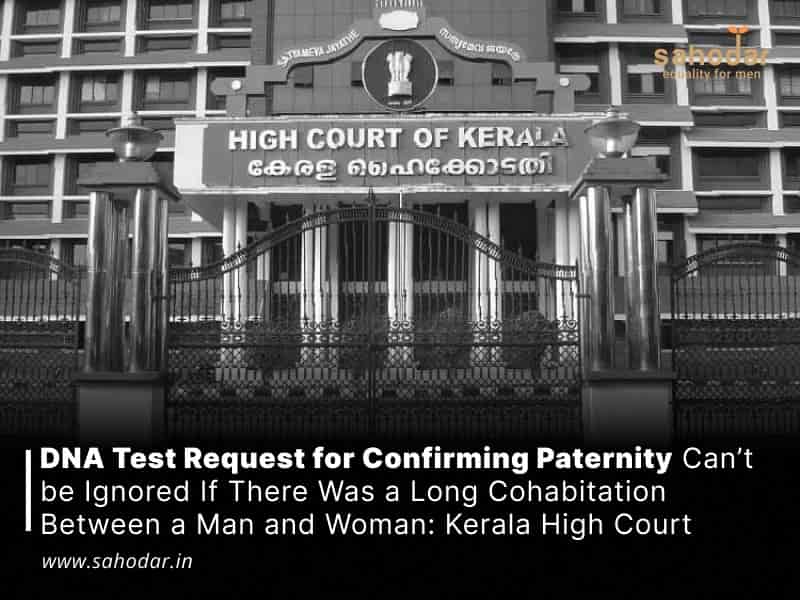The Kerala High Court recently held that if there is prima facie evidence of long cohabitation between a man and woman, the request for a DNA test to confirm the paternity of a child allegedly born out of such a relationship can’t be set aside as it would cast a social stigma; not only on the mother but significantly on the child.
Justice Mary Joseph made this observation when she rejected the man’s plea challenging a family court order directing the man to undergo a blood test for DNA verification to confirm the child’s paternity.
The Court noted that the woman who claimed to be the wife of the petitioner had made out a prima facie case that they had a relationship with each other and lived together as husband and wife. While the man was found to get failed to make a prima facie case in order to backup his claim stating that the woman led an immoral life.
Hence, the Court opined that it could not set aside the woman’s prayer for a DNA test to prove her claim of paternity of her child.
The Court further said, “If an order of this nature is declined that would have the impact of bastardizing the minor girl child among the public. Undoubtedly that would cast a social stigma upon the child as well as the mother respectively as ‘bastard’ and ‘immoral’.”
Referring to disputed claims of maintenance sought by the woman for herself as well as the child, the Court said, “True that an illegitimate child is also eligible for maintenance allowance but, for that paternity is a very relevant aspect to be established so as to enable the court to direct payment from the respondent who was alleged as his father.”
The petitioner (man) and woman were stated to have fallen in love and got into a relationship. They had also lived together as husband and wife, as claimed by the woman.
When the woman got pregnant, the petitioner sent her back to her home in Mumbai. The petitioner is also alleged to make a promise over the phone to marry the woman.
Further, the woman claimed that the petitioner sent her money for expenses and treatment, and even he also insisted her to come to Kollam, where he stayed at the time, for her delivery so that he could take care of her during her hospital stay.
However, when the woman came to Kollam later, she came to know that the petitioner had married another woman, the Court was told.
However, when the woman came to Kollam later, she came to know that the petitioner had already got married to another woman, she told this before the Court.
When she contacted and confronted him over the phone call, he promised her to look after the woman as well as her child and threatened her against disclosing their relationship to anyone else.
She also claimed that despite their differences, they continue their cohabitation and he also used to bear all the expenses of the woman and her girl child.
Furthermore, the petitioner also promised her to buy a flat on her name and also to take an insurance policy in the daughter’s name for her education and marriage. However, the man failed to keep his word and the woman asked for compliance. Afterward, the petitioner stopped giving her money towards maintenance in 2013.
The woman filed a complaint in the Kerala Women’s Commission initially and the latter directed the man to take a blood test for DNA examination but he didn’t cooperate due and thus ordered test couldn’t take place.
As a result, when the woman moved to the Family Court in Ernakulam, the petitioner denied any sort of marital relationship and cohabitation with the woman and also thrown aside the allegations of paternity.
Thereafter, the family court then directed the man to undergo a blood test for DNA analysis.
In response, the man approached the High Court.
He contended that the woman was leading a loose life and made false allegations just to extort money from him by humiliating him.
Going through all the evidence and precedents, the Court said that there was prima facie evidence supporting long cohabitation between the petitioner and the woman. Hence, it held that a DNA test order to the petitioner order to determine the paternity of the child can’t be avoided in any manner.
Therefore, the Court dismissed the petition given for quashing the order for a DNA test to determine paternity and upheld the order passed by the family order.
Source: https://www.barandbench.com/news/child-will-be-stigmatised-branded-bastard-dna-test-not-allowed-proof-cohabitation-kerala-high-court

